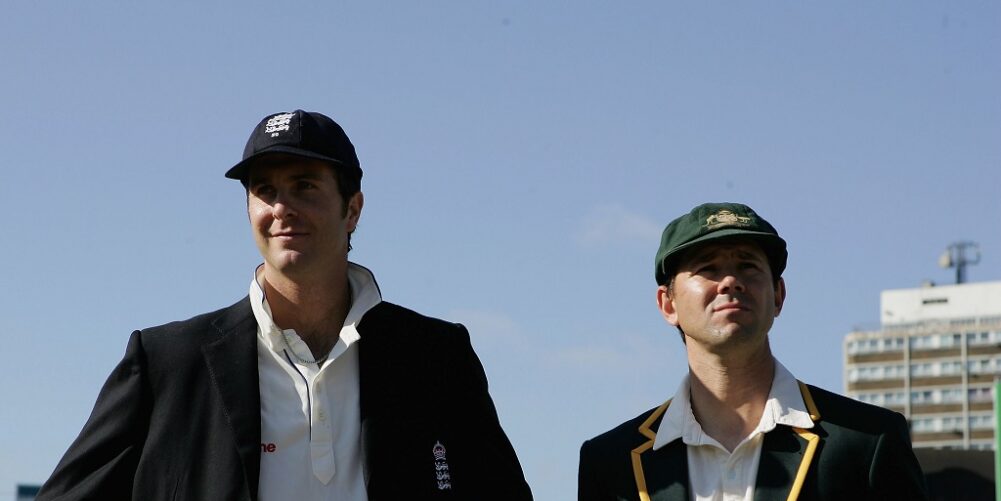By Paul Edwards
“It’s always the same with the Poms. They lose to Australia and then stick Botham’s Ashes in the video to take their minds off it.”
It was 1997 and those words were spoken by a visiting Melburnian after watching his countrymen retain the Ashes in some comfort, despite being defeated in the first and last games of a six-Test series.
It was difficult to give him an argument. England had some very fine players in the 1990s, but Australian cricket was enjoying perhaps its greatest era. The side captained successively and successfully by Allan Border, Mark Taylor and Steve Waugh was plumb in the middle of a 16-year period in which its grip on the Urn was rarely challenged.
In terms of longevity, that dominance has only been exceeded by that of the teams captained by Bill Woodfull, Don Bradman and Lindsay Hassett – and their hold on the Ashes may have been extended by Hitler’s interference.
It was, indeed, tempting during those grim years for England supporters to paraphrase the consoling words of Rick Blaine to Ilsa Lund in Casablanca and remind themselves they’d always have Headingley ’81. And then, after defeat in eight successive series, came not only an English victory but a set of matches so absurdly wonderful that it took cricket off the back pages and made it part of many national conversations.
And so, on these slate-grey January mornings as English cricket begins what threatens to be a prolonged session of agonising, one in which Australian excellence is unlikely to get much of a mention, let us be true to the pattern outlined by my Aussie mate 20 years ago and recall the 2005 Ashes – the summer of Freddie, Kevin and Tres.

There is a simple irony in the fact that the most unpredictable Ashes series of them all began with a result anyone could have forecast: an Australian victory at Lord’s. And yet even as Glenn McGrath and Shane Warne bowled their side to a 239-run win, England supporters could take savage comfort from remembering the blows Steve Harmison had inflicted on Justin Langer, Matthew Hayden and Ricky Ponting during the first morning of the game. As the batsmen’s injuries were treated, the English cricketers chatted amongst themselves as if determined to shake off the solicitous manner which had characterised previous encounters. They were playing hard ball.
And then there was Kevin Pietersen’s first Test innings, an 89-ball 57 during the course of which he took 14 runs off three deliveries from McGrath and whacked a slower ball into the crowd at long-off. Neither of Pietersen’s half-centuries wrested the match in England’s favour, but they announced the arrival of the most abundantly talented English batsman of the new century.
The papers, though, were more concerned with the team’s demise. “Vaughan Again Losers” announced The Sun; “Pushovers” declared the Daily Mail. The broadsheets may have chosen different language, but their judgements were similar. David Graveney, England’s chairman of selectors, still forecast a 2-1 win for the home side, but the fashion in which he was proved right still boggles the mind.
The series began to stray far from a predictable path at Edgbaston where McGrath trod on the ball during practice, Ponting put England in and Michael Vaughan’s batsmen scored 407 all out on an opening day for which a £90 ticket suddenly seemed something close to a bargain. By tea on the third day of the game, Australia needed 282 to win and perhaps it was then that the series began to seize the public’s imagination and play havoc with its nerves.
As league games concluded on that glorious Saturday evening, spectators with radios passed the news on that Flintoff, whose rapid 73 had given his side a chance of victory, had now taken the wickets of both Langer and Ponting. Harmison’s slower ball deceived Michael Clarke to leave Australia needing a further 107 with only two wickets in hand. Despite forties from Warne and Brett Lee, they failed by two runs, the second narrowest Test victory margin in terms of runs in cricket history. Flintoff, who had taken seven wickets and made two fifties, consoled Lee and an iconic image of good sportsmanship was born.
Suddenly, even the football journalists were writing about cricket. “Nothing in the next nine months of overhyped, overpaid bladder chasing is likely to be as gripping, as heroic or as memorable as the denouement of the Edgbaston Test match,” wrote The Observer’s Paul Wilson. Maybe so, some people thought, but things can’t carry on like this and Australia will keep the Ashes. They were wrong on both counts.
Having replaced the conviction that Australia were simply superior with the belief they could be beaten, England’s cricketers played with refreshing brio at Old Trafford in perhaps the best drawn Test in history.
Shane Warne took his 600th Test wicket and made a typically boisterous 90, but centuries by Vaughan and Andrew Strauss left Australia needing 423 to win on the final day. Entrance cost £10 for an adult on that steamy Monday, and I was one of the 22,000 people who paid up without a second thought. Another 10,000 folk were locked out and 7.7 million watched on free-to-air TV as cricket once again led the national news.
England’s bowlers worked their way through the Australian batting order, but Ponting’s 156, the best innings of the series, defied them.
Each wicket was greeted with a feral bellow of triumph, none more so than that of the Australian skipper when he was caught down the leg side by Geraint Jones off Steve Harmison four overs from the close.
Lee and McGrath batted out for a draw which was greeted like a victory on the Australian balcony. As the players trooped off, rival spectators shook hands as if they, too, had been playing cricket. In a way, they had.

The series was also making demands on cricket writers and many rose to the moment magnificently. For example, there was this from Max Davidson in The Daily Telegraph: “Who would have guessed that a month into the new football season, Beckham, Rooney and company would have been reduced to a sideshow? It has been like seeing the barbaric hordes repelled by the forces of decency and civilisation. Subtlety triumphing over brute force. Chivalry making a comeback in an era of four-letter words. But, oh dear, the riff-raff who have started to clamber on the bandwagon. They are talking about Freddie, Tres and Hoggy as if they have known them all their lives. They have obviously decided that cricket is the new sex and want a piece of the action before the next new sex comes along.”
At some point, we thought obstinately, there will be tedium; we were wrong again. Flintoff made a hundred at Trent Bridge, where someone paid £20,000 for five days rent on a penthouse flat with a view of the ground.
Simon Jones, having taken six wickets in the first innings at Old Trafford, grabbed another five as Australia were forced to follow on. Despite superb bowling by Lee and Warne, England edged home by three wickets on a Sunday afternoon when Ashley Giles made the best seven not out anyone could remember. At the Proms in the Royal Albert Hall, the news of England’s victory was greeted with applause and cheers by music lovers preparing to listen to Verdi’s Requiem.
And so the thousands with tickets for the Oval Test were joined by millions more, many of whom should have been at work.
Both Hayden and Langer made centuries but more heroic bowling by Flintoff and Matthew Hoggard gave England a six-run first-innings lead in a match frequently interrupted by rain and bad light.
England were tottering on 126 for five when Pietersen, who had been dropped by Warne at slip, ended the series as he had begun it, with a fusillade of sixes. His 158 and Giles’ 59 left Australia with nothing to hope for but a draw and the loss of the Ashes. Rudi Koertzen and Billy Bowden’s solemn removal of the bails to confirm the draw gave us the only anti-climax of the series but it was greeted with national rejoicing.

“Calvin Klein has signed up Steve Bucknor to advertise his underpants, Jennifer Lopez launched Edgbaston Glow, an eau de toilette with a refreshing hint of linseed oil, and Billy Bowden’s crooked finger has become the ‘in’ move at Britain’s thriving dance halls,” wrote Harry Pearson in The Guardian. “It seems the sky is the limit for ‘the summer game’. Even Pope Benedict has spoken out in favour of reverse swinging, though possibly because he thought it was a euphemism for celibacy.”
In The Times, Simon Barnes considered the all-rounder whose cricket had transformed the series and whose life would never be the same thereafter.
“If team spirit was at the heart of England’s victory over Australia in the Ashes series, then Flintoff was at the heart of the team spirit,” he wrote. “His was the summer, his the glory. Need a few runs! Send for Freddie. Need a wicket? Toss the ball to Freddie. It was the summer when Flintoff ceased to be a large man and became a giant.”
And gradually that series became a part of our history. Twitter was launched the following year and the Indian Premier League in 2008. Some England supporters are currently returning from Australia having seen the Ashes lost once again. But if those 2005 Tests become no more than a comfort blanket for defeated Poms, we are missing much of the point of them. They remain the best example of the summits cricket can scale – and they are regarded as such by many Australians. Patriotism is never enough.















